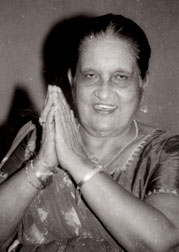|
dailynews |
|
|
|
|
|
OTHER LINKS |

|

|

|
Sirimavo Bandaranaike and the mixed economy recipe
REMEMBERED: The sixth death anniversary of late Prime Minister Sirimavo R. D. Bandaranaike should help bring back to many a Lankan mind the diverse services rendered to this country by administrations led by her. At this juncture in Lanka's post-independence economic history, when the painful dilemmas generated by the liberalized economy are very much at the centre of national and global debate, it would prove useful to assess the value of the approach to economic development, the Sirimavo Bandaranaike - led ULF government, in the years 1970-1977, adopted. To be sure, the mixed economy model, as this approach was known, generated immense debate and proved highly controversial at that time and even ever after. Those years were certainly a far cry from the heady post-1977, economic liberalization years which were believed to have delivered Sri Lanka from her economic woes. So seemingly powerful and far-reaching were the consequences of the open economy model ushered in by the J. R. Jayewardene administration of 1977, that a considerable section of local public opinion continues to entertain the belief that the "open economy" has done the trick and brought us lasting economic salvation. To be sure, in a very real sense, the 1970-1977 period was marked by burdensome economic woes - queues, quotas, controls, shortages etc. Imports were severely restricted and the Import Substitution Industrialization program of the then government did never get into top gear. The production process was stymied and economic stagnation was, more or less, the order of the day. Unemployment, particularly youth unemployment, was rampant and youth upheavals were experienced perhaps for the first time in modern Lankan history. These minuses of the so-called closed economy days no one could deny. But 25 years or more into the "open economy" experiment, what does the impartial observer of Lankan affairs have to say? The 1970-1977 mixed economy years brought their woes but to what degree is Sri Lanka and, for that matter the world, better off under the liberalized economy or economic globalization? This is the prime poser for the economic watcher. The assertive re-emergence of the Nonaligned Movement - of which Premier Sirimavo Bandaranaike was the Chairman in 1976 - should be regarded as a strong critical comment on how humanity has been faring under economic globalization or liberalization. The worsening of the lot of the common man in Central and Latin America has seen the emergence in these regions of a number of socialist governments. This is proof that the "mixed economy", if not socialism, is coming into vogue once again in some parts of the world. The fundamental issue is that the "open economy" brings disproportionate wealth to a few at the cost of the many. This is the price the world pays for complacently dismantling the essential pillars of the welfare state. To be sure, the people cannot be reduced to passive recipients of State assistance. They need to be trained and schooled into coming out of the poverty trap. There is no disputing this point. However, the irony is that under market reforms, even education tends to get a price and many children and young dependents are forced to drop out of school because they cannot afford to pay this price. In contrast, during the so-called closed economy years, school drop-outs were never a serious problem. Jobs may not have been plentiful, but the majority of children did receive at least a primary education. It was the former World Bank head in Sri Lanka who drew attention to the current widening income disparities in Sri Lanka. Wealth and affluence is disproportionately concentrated in the Colombo and Gampaha district, while the rest of the country couldn't boast of any sizeable wealth. All this and more is happening under market-led growth. We are certainly having growth but not equity to the desired degree. Needless to say, such situations are a recipe for social discontentment. Moreover, even in the West, economic globalization and its effects are widely debated and contested. This is the reason why every Western economic forum brings on to the streets protesters and dissidents of the fiercest kind in growing numbers. The approach to development adopted by the ULF administration headed by the late Sirimavo Bandaranaike may not have been a magic wand which solved the country's ills in one go, but seen from this, point in time, it has many positives which need to be incorporated in todays economic management strategies. Today, price control is unheard of but the administration under Premier Sirimavo Bandaranaike had a price control mechanism in place which shielded the poor from steep price rises. What was commendable about "Mrs B" was that she governed with single - minded purpose, with a firm grasp of what was essential for the public well being. At present when the negative spill-over effects of economic liberalization are widely debated, it would be worth remembering that a genuinely mixed economy is still the best for all. |









